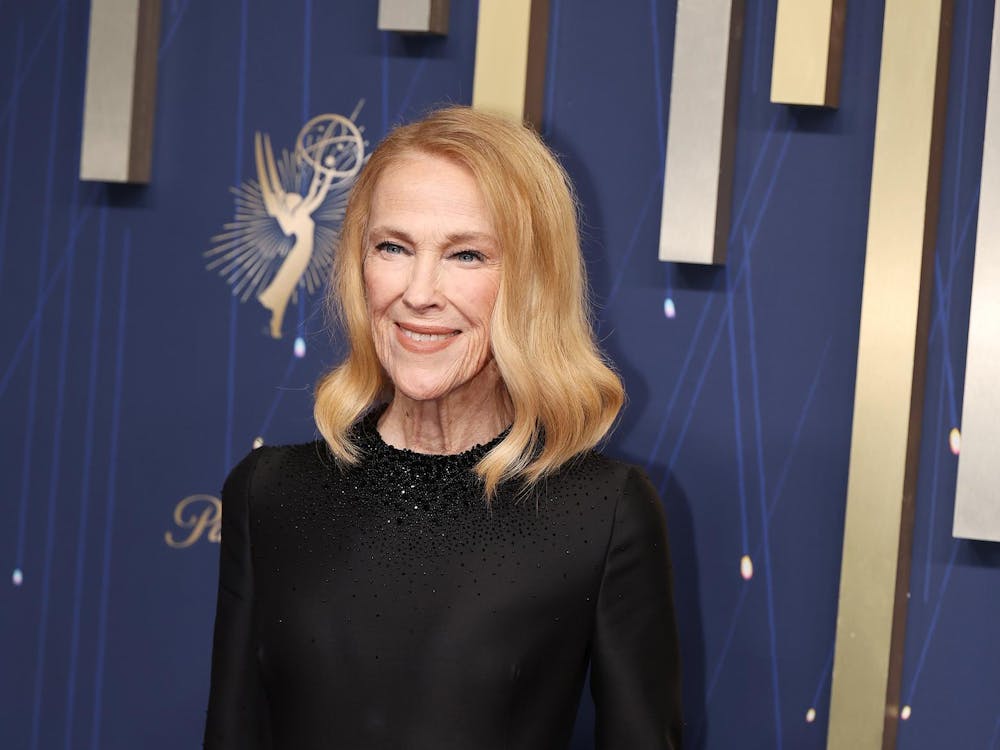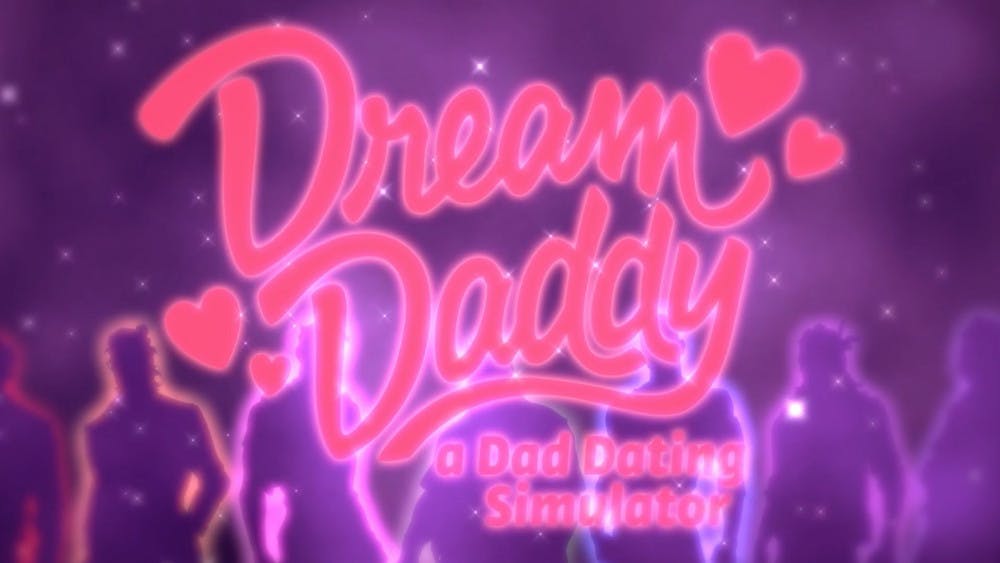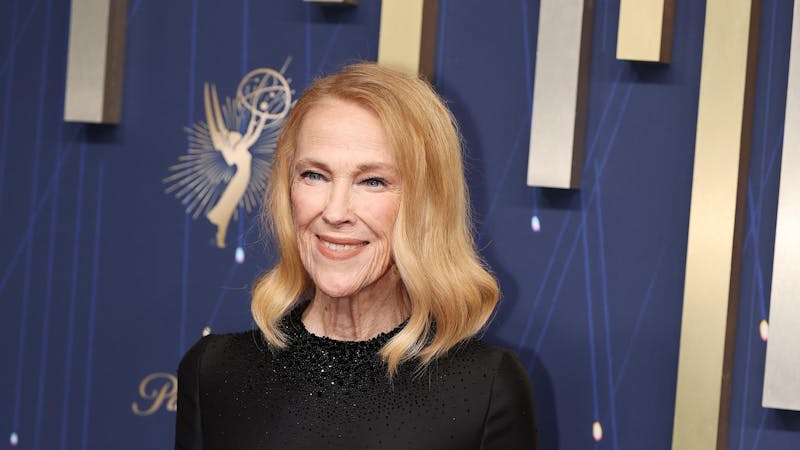by Emily Reuben Despite a delay in release, many have been excited to play the Grumps’ first attempt at game development. With a delayed release and big promises of an LGBT positive, entertaining game simulator, does the Dream Daddy team deliver?
Daddies galore
Dream Daddy is a dating simulator featuring an array of dreamy dads with their own branching pathways. Players can expect to receive one of three potential endings for the seven datable dads: a good, neutral, or bad ending. The ending is determined by which dialogue choices the player chooses, and of course which prospective dad the player has decided to date. Outside of the romantic sphere, the player’s daughter, Amanda, consumes a vast portion of the game’s scenes, dividing the focus between dating and family life. Another issue with the title stems from Amanda’s involvement with the player. The majority of the game is consumed by Amanda, but the title indicates that dating dads is the game’s primary focus. While the scenes with Amanda are charming (and quite emotionally moving at times), there is far too much focus on her. The game begins with the player and Amanda moving to a new town together and the player’s character laments about her moving to college soon. As issues with Amanda’s highschool life begin to surface, Dream Daddy shifts to highlight the relationship between parent and child and the struggles of single parenthood. While this relationship is interesting, it completely overshadows the dating aspect of the game, which is advertised as the focus.
The dads are given almost no time to develop a romantic relationship with. The player is expected to go on three dates with these dads, but they all end rather quickly. Instances of characterization can still be found in each of the dad’s plotlines, however. For example, Joseph’s plotline may indicate details about Robert or vice versa. Despite this, there still isn’t much here. Additionally, the potential endings with each of the daddies end abruptly and will most likely leave the player wanting more. There are no real instances of intimacy, except those shown off screen. There doesn’t have to be gratuitous sex scenes on display, but the game truly does not make the player feel as if they are romancing another person.
Another issue with the title stems from Amanda’s involvement with the player. The majority of the game is consumed by Amanda, but the title indicates that dating dads is the game’s primary focus. While the scenes with Amanda are charming (and quite emotionally moving at times), there is far too much focus on her. The game begins with the player and Amanda moving to a new town together and the player’s character laments about her moving to college soon. As issues with Amanda’s highschool life begin to surface, Dream Daddy shifts to highlight the relationship between parent and child and the struggles of single parenthood. While this relationship is interesting, it completely overshadows the dating aspect of the game, which is advertised as the focus.
The dads are given almost no time to develop a romantic relationship with. The player is expected to go on three dates with these dads, but they all end rather quickly. Instances of characterization can still be found in each of the dad’s plotlines, however. For example, Joseph’s plotline may indicate details about Robert or vice versa. Despite this, there still isn’t much here. Additionally, the potential endings with each of the daddies end abruptly and will most likely leave the player wanting more. There are no real instances of intimacy, except those shown off screen. There doesn’t have to be gratuitous sex scenes on display, but the game truly does not make the player feel as if they are romancing another person.
 Considering that half of the game is devoted to Amanda and the other dating dad’s, it’s strange that the player’s relationship with other dads is not discussed with Amanda. With the amount of screentime she is given, it initially seemed as if the bonding as a family and adding another person to that family would play a major role. This is not the case. Amanda has no interaction with the player’s chosen dad (outside of initial meetings or group events) and no bearing on the player’s emotions. Including this relationship would have fixed the major issue regarding a lack of focus on the potential dates while maintaining Amanda as an important character.
The lack of focus on the dads is extremely disappointing, but what is there is genuinely charming. All of the dads are extremely likable and diverse in appearance and dialogue. The great writing really does these guys a favor, turning the short scenes into fun little romps. Obviously, there is a lot of room for improvement, but the characters here exhibit instances of great characterization and if the dads were given more attention, the game would be infinitely more interesting.
Considering that half of the game is devoted to Amanda and the other dating dad’s, it’s strange that the player’s relationship with other dads is not discussed with Amanda. With the amount of screentime she is given, it initially seemed as if the bonding as a family and adding another person to that family would play a major role. This is not the case. Amanda has no interaction with the player’s chosen dad (outside of initial meetings or group events) and no bearing on the player’s emotions. Including this relationship would have fixed the major issue regarding a lack of focus on the potential dates while maintaining Amanda as an important character.
The lack of focus on the dads is extremely disappointing, but what is there is genuinely charming. All of the dads are extremely likable and diverse in appearance and dialogue. The great writing really does these guys a favor, turning the short scenes into fun little romps. Obviously, there is a lot of room for improvement, but the characters here exhibit instances of great characterization and if the dads were given more attention, the game would be infinitely more interesting.
Diversity on display
Dream Daddy is an excellent addition to the gaming market in terms of positive LGBT representation. Players can customize their dad with an array of skin tones, body types, hair colors, or by creating a bisexual or even trans dad. No matter the choice of the player’s or any of the characters’, sexuality is not discussed; it is just accepted. Similarly, the idea that this game revolves around dads dating other dads without any distasteful jokes is an absolute wonder. The characters are all vastly diverse without shoving it down the player’s throat. It is nice to have a game positively highlight diversity in such a natural way. Representation is extremely important, especially in the (mostly) homogenous gaming market. The game developers and writers did an excellent job creating a naturally inclusive gaming experience.
The characters are all vastly diverse without shoving it down the player’s throat. It is nice to have a game positively highlight diversity in such a natural way. Representation is extremely important, especially in the (mostly) homogenous gaming market. The game developers and writers did an excellent job creating a naturally inclusive gaming experience.
Gameplay simple enough for a dad
The biggest issue is the misleading title: Dream Daddy: A Dad Dating Simulator. The game feels more like a visual novel than a real game due to the constant reading required to play the game and lack of player interaction. For those who want to play a game and feel immersed in a different world, this is not the game for you. The voice acting is a bit strange. When advertising for the game, there were promises of online celebrity voice acting, in this case The Game Grumps crew voicing various characters. This is technically true, but similar to Yooka Laylee, the voice acting is a series of grunts that accompany text boxes. The voices are cute towards the beginning, but after a while, they start to become a bit grating. This is truer of some characters than others, and while not game breaking, it does become annoying. There are a few mini-games spread out here and there that break up the tedium of reading; however these games are clunky. An especially irritating mini-game is featured in Joseph’s path, requiring the player to fix a broken radio. For example, one such mini-game shows a bird’s eye view of the inside of the radio, and the player is given multiple objects to “fix” the radio, including sting, a rubber duck, and paper clips. There are no instructions, no indications of what needs to be done; only a few noises that indicate something has happened. In the end, the puzzle can be fixed by simply throwing all of the junk items into the radio. Honestly, it is unclear if this is a glitch, a joke, or clunky programming.
There is some relevance of choice involved. As stated previously, decisions made by the character impact how your dream daddy of choice feels about you. Strangely, the visual cues relaying the success of a dialogue exchange is very vague. Some options results in hearts or a dark cloud. These are relatively self-explanatory; hearts are good, dark aura is bad. What isn’t clear are the eggplants. Some exchanges result in eggplants exuding from the daddy without any indication of what it means. Apparently, eggplants are the best result, their being yet another pop culture reference into the eggplant emoji's not so innocent, deeper meaning.
There are a few mini-games spread out here and there that break up the tedium of reading; however these games are clunky. An especially irritating mini-game is featured in Joseph’s path, requiring the player to fix a broken radio. For example, one such mini-game shows a bird’s eye view of the inside of the radio, and the player is given multiple objects to “fix” the radio, including sting, a rubber duck, and paper clips. There are no instructions, no indications of what needs to be done; only a few noises that indicate something has happened. In the end, the puzzle can be fixed by simply throwing all of the junk items into the radio. Honestly, it is unclear if this is a glitch, a joke, or clunky programming.
There is some relevance of choice involved. As stated previously, decisions made by the character impact how your dream daddy of choice feels about you. Strangely, the visual cues relaying the success of a dialogue exchange is very vague. Some options results in hearts or a dark cloud. These are relatively self-explanatory; hearts are good, dark aura is bad. What isn’t clear are the eggplants. Some exchanges result in eggplants exuding from the daddy without any indication of what it means. Apparently, eggplants are the best result, their being yet another pop culture reference into the eggplant emoji's not so innocent, deeper meaning.
 The illusion of choice is an issue with many dating simulators, and gaming in general (ex. Until Dawn); Dream Daddy is no exception. There are branching paths, but they are extremely limited. For example, the game allows the player to choose if they were married to a man or woman, but despite the choice, the script will later mention a “husband”. This is most likely an error, and really the decision either way does not influence how the dads feel about the player, but it still impacts the player’s initial choice. There are apparent endings that are nearly impossible to obtain due to the game’s unclear nature, or potentially programming errors. This impacts the results that the player is hoping to achieve. For example, achieving Amanda’s bad ending is extremely specific. Despite some clearly unfavorable choices that the player can choose, they all seem to result in a positive ending between Amanda and her father. The same can be said of Joseph’s ending, but there may be more to his storyline that will be uncovered or added to later, hopefully clarifying his route.
What really makes up for a lot of these issues is the hilarious writing. There is a lot of charm to be found in Dream Daddy, especially plenty of dad puns. While many of the scenes are short, plenty of entertainment can be found. For those looking for the usual brand of raucous Game Grumps humor, you may be disappointed. Dream Daddy is rather tame in its humor, relying on wordplay, pop culture references, puns, and humorous interactions between characters. All of this is done in a rather inoffensive manner, which is almost surprising considering the Grumps typical bawdy brand of humor.
The illusion of choice is an issue with many dating simulators, and gaming in general (ex. Until Dawn); Dream Daddy is no exception. There are branching paths, but they are extremely limited. For example, the game allows the player to choose if they were married to a man or woman, but despite the choice, the script will later mention a “husband”. This is most likely an error, and really the decision either way does not influence how the dads feel about the player, but it still impacts the player’s initial choice. There are apparent endings that are nearly impossible to obtain due to the game’s unclear nature, or potentially programming errors. This impacts the results that the player is hoping to achieve. For example, achieving Amanda’s bad ending is extremely specific. Despite some clearly unfavorable choices that the player can choose, they all seem to result in a positive ending between Amanda and her father. The same can be said of Joseph’s ending, but there may be more to his storyline that will be uncovered or added to later, hopefully clarifying his route.
What really makes up for a lot of these issues is the hilarious writing. There is a lot of charm to be found in Dream Daddy, especially plenty of dad puns. While many of the scenes are short, plenty of entertainment can be found. For those looking for the usual brand of raucous Game Grumps humor, you may be disappointed. Dream Daddy is rather tame in its humor, relying on wordplay, pop culture references, puns, and humorous interactions between characters. All of this is done in a rather inoffensive manner, which is almost surprising considering the Grumps typical bawdy brand of humor.
Design that lets the dads shine
 Dream Daddy looks great: the characters are well designed; the backgrounds are colorful; even the textbox is appealing to look at! The character designs are where the art truly shines. The styles all perfectly match the character’s personality and visually exude their aesthetics. The exception to this is the player’s character who looks like a pixelated disappointment in comparison. This is understandable given that the developers had to make a model simple enough for player customization, however it would be nice if the player at least looked like they belonged in the same game.
The backgrounds are simplistic yet charming. The coloration is what really makes the backgrounds shine. They're not bright enough to distract from the characters in the foreground, but they have a character all their own, perfectly matching the tone of the game.
Dream Daddy looks great: the characters are well designed; the backgrounds are colorful; even the textbox is appealing to look at! The character designs are where the art truly shines. The styles all perfectly match the character’s personality and visually exude their aesthetics. The exception to this is the player’s character who looks like a pixelated disappointment in comparison. This is understandable given that the developers had to make a model simple enough for player customization, however it would be nice if the player at least looked like they belonged in the same game.
The backgrounds are simplistic yet charming. The coloration is what really makes the backgrounds shine. They're not bright enough to distract from the characters in the foreground, but they have a character all their own, perfectly matching the tone of the game.


















